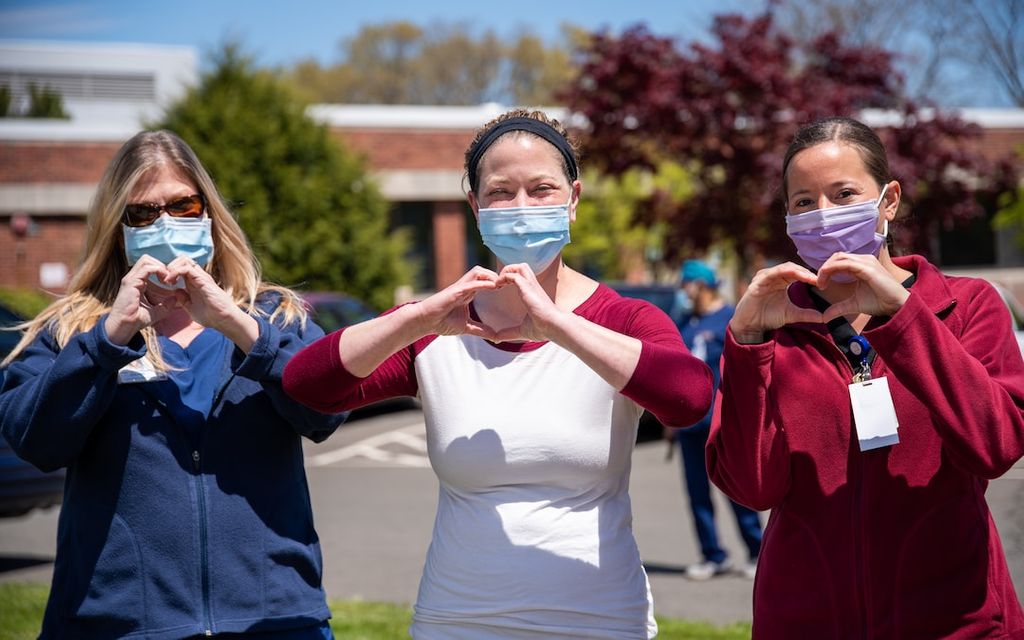The Ultimate Guide: How To Become A Travel Nurse
Dec 16, 2023 • 6 views
Embarking on a career as a travel nurse can be both exhilarating and daunting. It's a unique branch of nursing that offers the chance to explore new places while caring for patients in diverse settings. Before you pack your bags, it's essential to understand what the role entails, the prerequisites you must meet, and how to navigate the professional landscape of travel nursing. In this article, we’ll delve into the key steps you need to take to join this dynamic field.
Understanding the Role and Responsibilities of a Travel Nurse

Travel nurses are registered nurses (RNs) who work temporary assignments at hospitals and healthcare facilities across the country or even internationally. The primary role of a travel nurse is to fill staffing gaps, which can be caused by seasonal patient surges, leave of absence, or shortages in specialized areas. This type of work demands a high level of adaptability, as the nurse must quickly acclimate to new environments and integrate into existing healthcare teams.
In the modern era, you should know that technology can be a travel nurse's ally. Platforms and apps designed for travel healthcare professionals simplify the job search and application process. Here, nurses can filter opportunities based on location, specialty, and pay rate. Utilizing a trustworthy and efficient platform, like Prolink, can streamline the search for the next exciting opportunity. The access to a vast network of job opportunities and comprehensive support is valuable. By partnering with an agency, you can ensure a smoother transition into travel nursing and maximize your chances of success in this rewarding profession.
The responsibilities of a travel nurse are akin to those of a staff nurse, which include providing patient care, administering medications, and collaborating with other healthcare professionals. However, travel nurses often bring a fresh perspective to a facility, providing input that could improve patient care. They also have to be well-versed in various electronic health record systems and ready to adapt to different hospital protocols.
Gaining Experience and Specializing as a Travel Nurse
While it's possible to travel shortly after becoming an RN, most agencies and facilities look for nurses with at least one to two years of clinical experience. Specializing in a high-demand area, like the operating room (OR), intensive care unit (ICU), or emergency room (ER), can increase a nurse’s desirability and the number of assignments available to them. Specialty experience is a major asset in travel nursing. It allows the nurse to function effectively in diverse clinical settings and boosts their professional profile.
For nurses inclined towards a specific field, obtaining a certification can be an advantageous career move. Certifications demonstrate expertise and commitment, which benefit both the nurse and potential employers. Continuing to learn and evolve professionally is crucial in this competitive environment. Travel nurses should seize opportunities for professional development, such as attending workshops, participating in training programs, or pursuing higher education. Such experiences not only refine their skills but may also lead to higher pay rates.
Networking and Finding Travel Nursing Opportunities

Building a robust professional network is key to uncovering the best travel nursing positions. Connecting with other travel nurses, joining professional organizations, and attending industry conferences can provide insights and lead to valuable contacts. Social media platforms and online forums are also excellent resources for networking and sharing experiences with peers. Finding the right travel nursing agency is critical since it acts as the intermediary between the nurse and potential assignments.
Researching and selecting an agency that aligns with personal and professional goals is a significant step. It’s important to consider factors like agency reputation, the support provided to nurses, the variety of assignments, and the benefits offered. Maintaining a detailed and up-to-date resume is vital, as is engaging in lifelong learning. It should highlight clinical experiences, specialties, certifications, and any additional skills pertinent to the field. A well-crafted resume opens doors and serves as a nurse's first impression to potential employers.
As this guide clearly illustrates, becoming a travel nurse is a journey that involves continuous learning, personal growth, and adaptability. It's a life-changing career path that offers unparalleled opportunities for those willing to take the plunge. With the right preparation and mindset, travel nursing can be immensely rewarding, providing the perfect blend of professional advancement and adventure.
